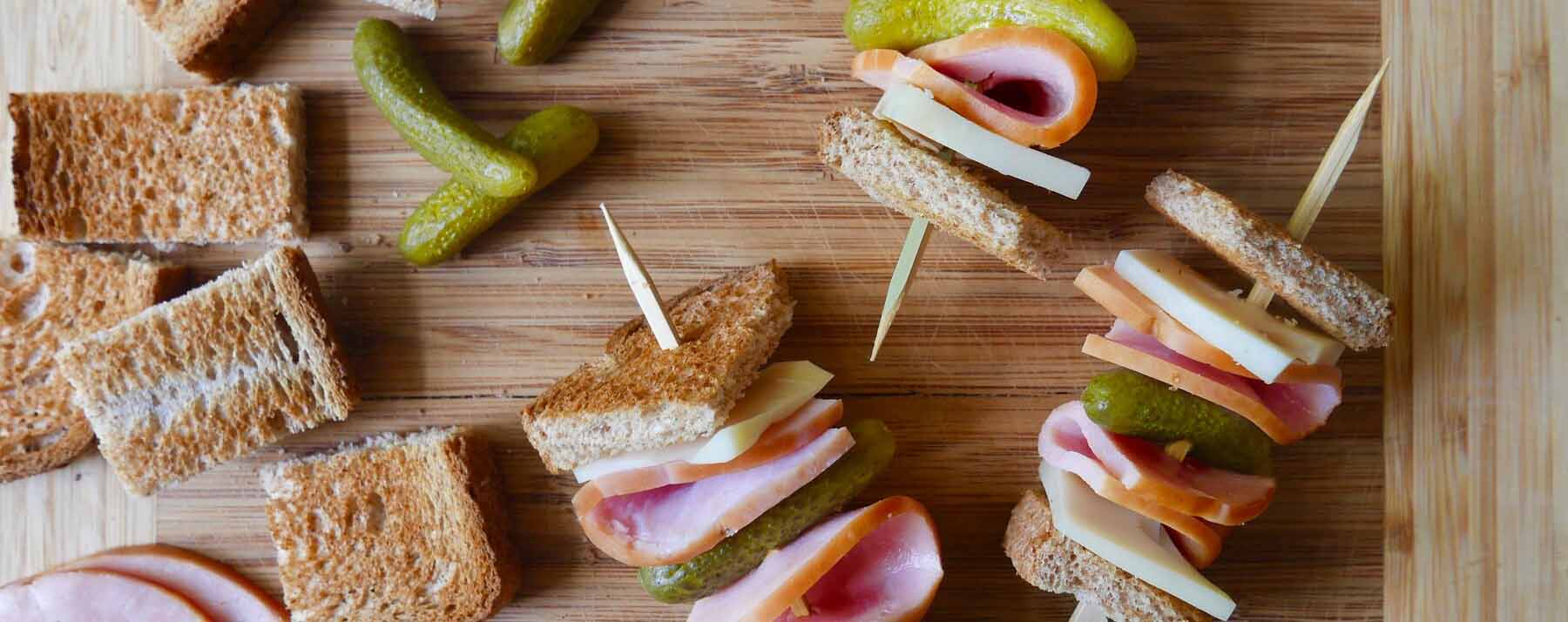Everything You Need to Know About Eating Bread When You Want to Lose Weight


Chances are you know at least one person who has given up carbs to lose weight. But you don't have to say no to toast, sandwiches, and bread bowls to see your scale numbers move in the right direction. In reality, if you stick to whole grains, bread can be a downright healthy part of a balanced diet since it delivers worthwhile nutrients and can contain fibre that helps keep you full. Plus, building healthy eating patterns around foods you love can help you remain on course. With that in mind, here’s a guide to navigating your bread options, starting with the basics:
What's So Great About Whole Grains?
Whole grains have multiple health benefits: According to the USDA, people who consume at least three servings of whole grains each day are at lower risk for diabetes and heart disease. And several studies have shown that diets high in whole grains are associated with lower body weight. So what counts as whole grain? In addition to common examples like oats, brown rice, barley, and quinoa, whole grains include flours milled using the entire grain, which preserves its fibre, vitamins, and minerals. Buckwheat, bulgur (cracked wheat), millet, rye, and spelt also qualify.
What to Look For
Most supermarket bread aisles are overflowing with options that make various claims—one reason why it's smart to read packages carefully. The best place to begin is the ingredient list, where primary ingredients are listed in order of quantity from most to least. If the first ingredient doesn't begin with the word "whole," beware: it may not make up a substantial part of the product you're considering, even if it's the second or third item listed.
Multigrain breads can be tricky to assess, since each individual grain makes up only a small portion of the recipe. However, taken together, the product's whole-grain content may be superb. Ideally, you’re looking for 16 grams of whole grains in a serving; most bread that meets this level will mention it somewhere on the package, whether you're shopping for sliced bread, English muffins, bagels, or wraps.
What to Avoid
When you’re reading the label, steer clear of breads made with "white flour," "enriched white flour" or "wheat flour." All three of these terms signify that the grain has been refined, aka stripped of the nutrient- and fibre-rich bran and germ, and all what's left is the starchy stuff with none of the health benefits. Also look out for trans fats (partially hydrogenated, vegetable oil shortening or hydrogenated vegetable oil if you're still scanning ingredients). These are the fats that can increase your risk for heart disease, and because none of them are essential in bread-baking, they should be easy to dodge.
But What About Bakery Bread?!
Without a package to read, it’s difficult to know for sure exactly what you’re getting with bakery bread. But there are some rules of thumb: Look for whole-wheat bread. Ask if you can pick up the loaf before buying, and if it feels air-light, don’t buy it. Generally speaking, the heftier the bread, the higher the whole-grain content. And don’t be afraid to ask questions! Bakers are often proud to discuss their product and will be more than happy to tout high-quality ingredients.
More Bread Aisle Food for Thought
Whole white wheat
- If you (or your kids) don’t like the hearty taste of whole-grain breads, this option uses a type of grain that's not only lighter in colour but also milder in flavour. Double check that you’re buying whole white wheat, though, or you may wind up with refined flour, which offers very little nutritional value.
Light breads
- Choosing bread isn’t only about whole grains; carbs, protein, fat and fibre should be taken into account too. Light whole-grain breads can save calories while still offering fibre to keep you feeling satisfied which can help you stay within your SmartPoints® Budget.
Organic breads
- These ingredients are grown without pesticides, herbicides, or fungicides, which may be beneficial to your body and the planet, but won’t make much difference nutritionally.
